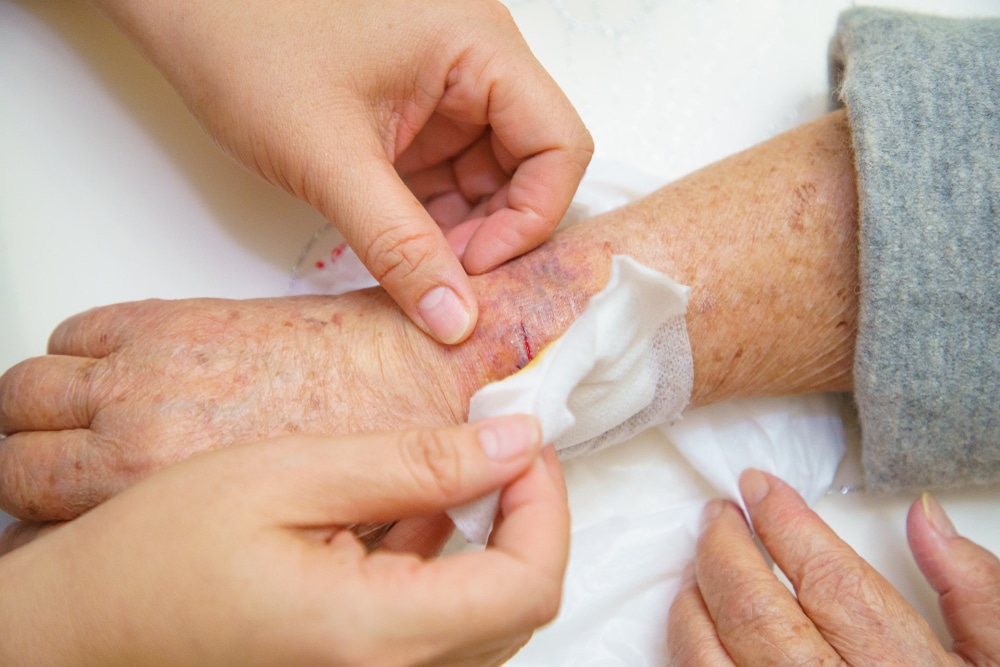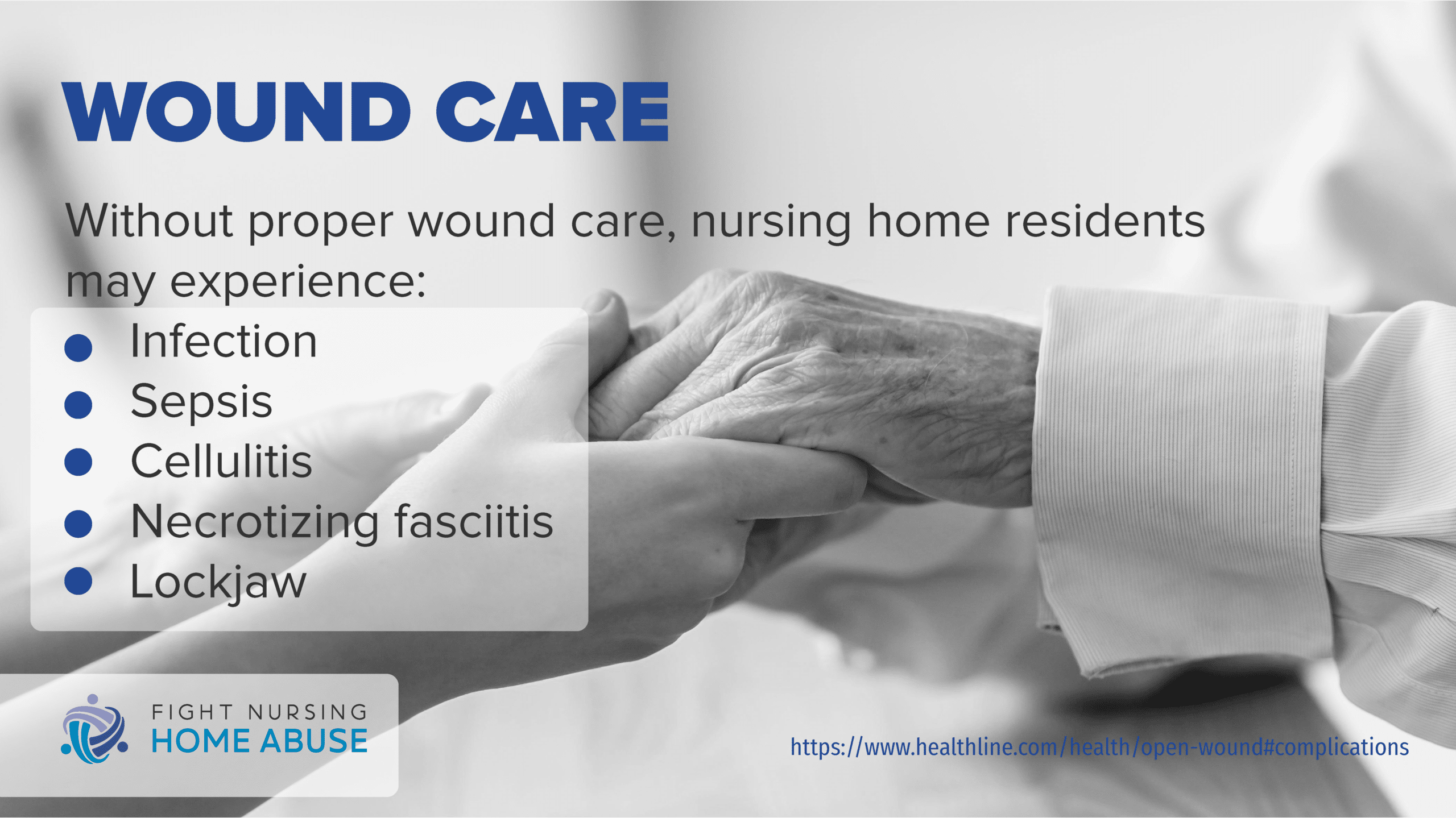Wound Care

Nursing home residents suffer from wounds for various reasons. Chronic conditions, injuries, bedsores and neuropathic ulcers are just a few examples of the types of wounds that a resident may experience. Because residents are vulnerable to wounds, infections and sepsis, wound care in nursing homes is a significant concern.
According to the Centers for Disease and Control and Prevention’s (CDC) National Center for Health Statistics, nursing home residents today tend be older than those over a decade ago. They also tend to have more preexisting conditions that could lead to wounds, such as diabetes.
Without proper care, wounds can become infected at a much higher rate for senior citizens compared to an average healthy adult. These wounds can lead to serious health issues such as additional illnesses and even death. Sadly, poor wound care is often a sign of nursing home abuse or neglect.

Proper Wound Care in Nursing Homes
The key to providing wound care for nursing home residents is to have qualified medical staff on-site who can properly identify wounds and treat them accordingly. Also, staff and caregivers should know how to assess for wounds and get medical help if necessary. Nursing home staff and nurses can do the following to prevent wounds and ensure proper wound care in nursing homes:
Regular Check-Ups
Foremost, each and every nursing home resident should undergo regular check-ups and examinations. This will ensure that wounds that may have gone unnoticed will be properly detected. This also acts as a preventative measure for possible future wounds and illnesses. No resident should ever go without routine check-ups, even if nothing seems amiss. Each staff member in every nursing home should have thorough training in order to detect wounds and ulcers.
Stage of Wound
If a wound is identified, it needs to be put into the proper classification, or stage. Most wounds are “staged“, such as Stage I, II, III, or IV. These stages include:
- I is a superficial wound that has not broken the skin.
- II is a wound that penetrates the dermis (outer layer of skin) and creates a shallow wound.
- III involves lower layers of skin and subcutaneous fat. The wound is open and may ooze.
- IV is a serious wound that penetrates to the muscle, tendon or bone. The wound is open and very susceptible to infection. It may ooze and have a foul odor.
Stage I or II wounds generally respond well to treatment after a quick diagnosis. Stage II and IV are considered an emergency and the resident should get immediate medical attention. An untreated late-stage wound can cause permanent damage to tissue and bones.
Wound Care
Once doctors determine the stage of the wound, proper medical attention should immediately follow. Proper care is dependent upon the severity of the wound and will range from antibiotic treatments, specialized bandage care, skin grafts, wound vacuums, compression therapy, oxygen therapy and more.
Once proper care begins, staff should monitor the nursing home resident in regular intervals to ensure that the wound has begun to heal. Caregivers should also watch out for signs of infection, including sepsis. In addition, caregivers should reposition immobile residents at least once every two hours. Residents should have access to the necessary bedding and devices to minimize pressure on wounds and at risk areas.
Another factor that is often overlooked when treating wounds is nutrition. Nursing home staff should never make the assumption that the patient’s nutritional intake is up to par when dealing with wounds. Macronutrients and micronutrients are extremely important to a patient recovering from a wound. Nursing home staff should always make sure that residents are getting appropriate nutrition.
Meeting the above criteria will not only help wounds heal, but will also support preventative measures to ensure proper wound care in nursing homes.
Legal Options for Wound Care in Nursing Homes
If you believe that a loved one is not receiving proper wound care, it is imperative to seek legal counsel in order to better understand your options. Nursing home abuse lawyers have extensive knowledge regarding the legal requirements for nursing homes. If a nursing home and/or staff abused or neglected your loved one, a nursing home abuse lawyer can help you fight back.
At Fight Nursing Home Abuse, we fight to ensure that nursing home residents receive proper care. Contact us to find out if your loved one is suffering from abuse or neglect. If so, let us help you pursue justice and financial compensation that your loved one deserves. To schedule a free consultation, call us at 1-866-548-9636, or fill out the form on your screen.


